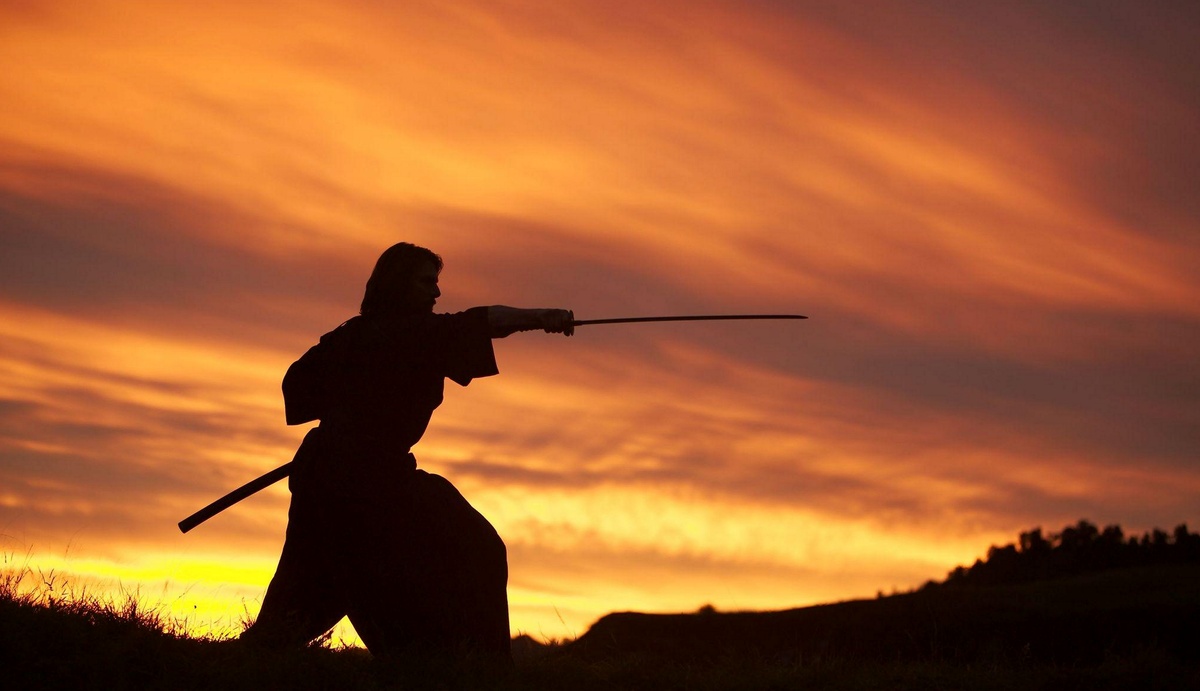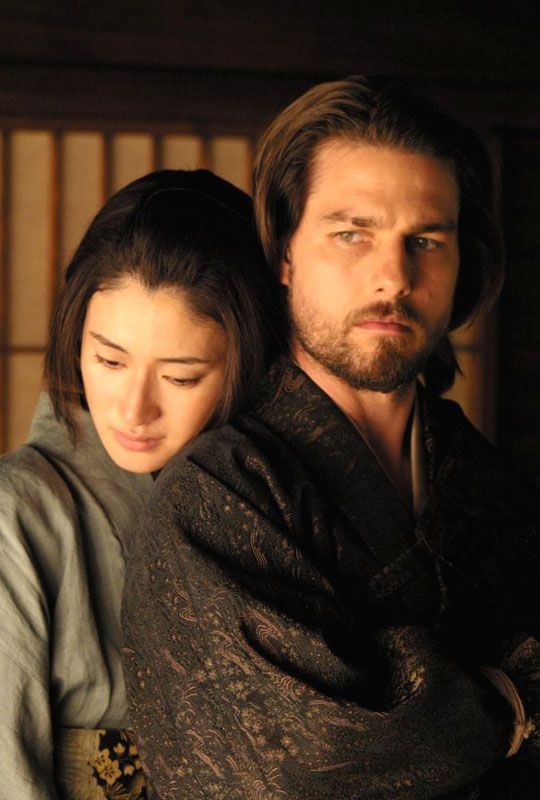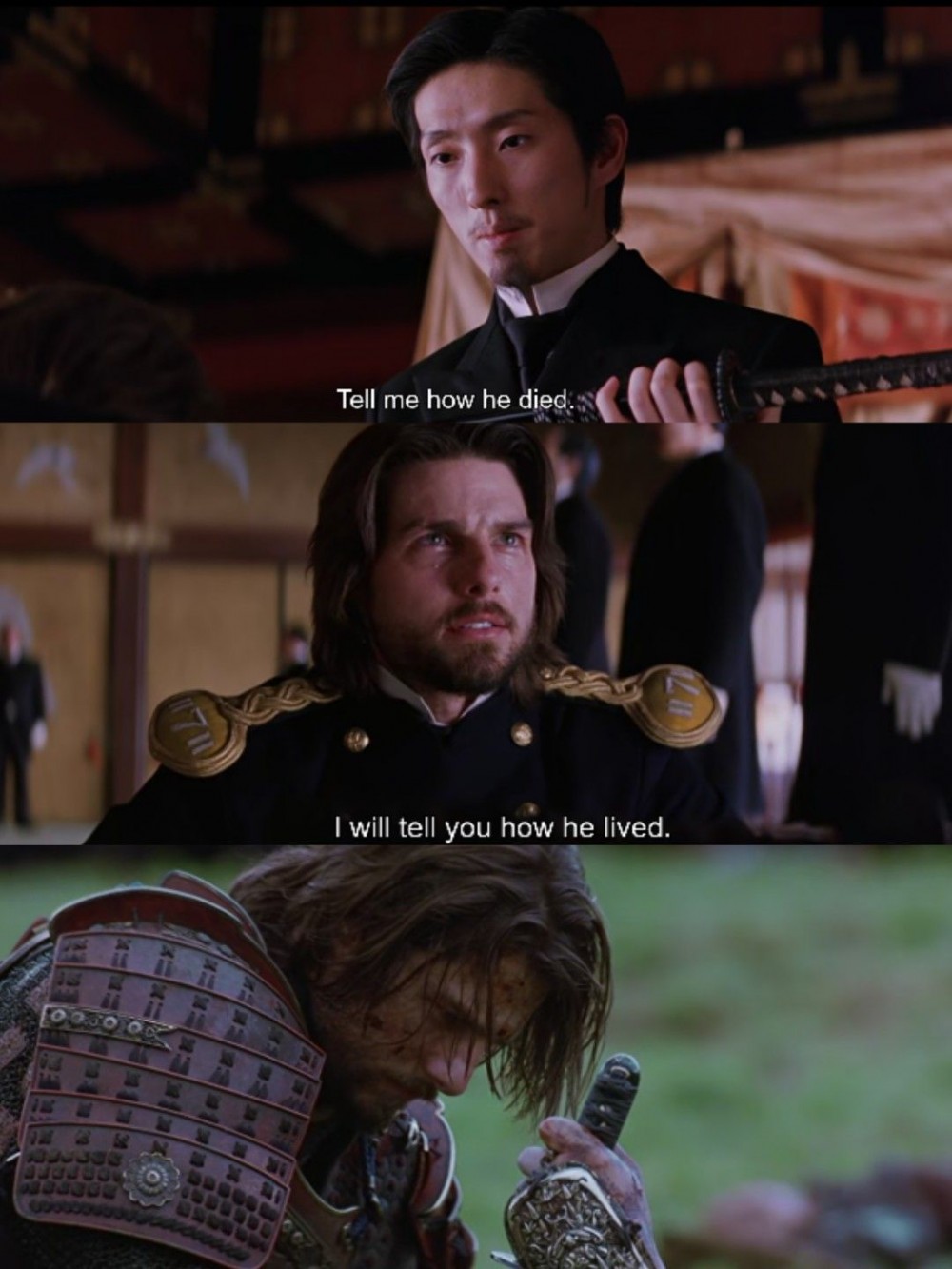
The-Last-Samurai-From-a-Student-to-a-Teacher-He
(I recommend watching the film before reading this.)
One of my teachers once said that humans were given two incredible gifts: the ability to ask questions and the freedom to choose.
I don’t remember how old I was when I first watched The Last Samurai, but every time I do, something in me becomes still.
We can agree that the film is about the personal evolution of its main characters, especially Nathan Algren and Japan’s evolution from tradition to modernization. But the story also carries a rare purity: a state of being that reveals what it means to live by an inner code, to serve a purpose greater than ego, and to devote oneself to a way of life that ultimately leads to peace.
A few weeks ago, after watching it again, one question stayed with me: Why does Nathan Algren, a decorated American captain, feel like a prisoner at the beginning of the story, when he is, in fact, physically free, yet after being captured by the samurai, he finally feels free?
At first glance, he’s survived the war, holds the rank of captain, has published a book, and has been offered a respected military position. He travels, he earns, he commands.
Outwardly, he appears free.
But inside, he’s fractured - haunted by the memory of killing the innocent, women and children among them.
He drinks to forget.
He knows the truth about himself and must live with it daily. He understands what his position and money have made him do, and the self-betrayal he carries leaves him without fear of death.
His actions and values no longer align.
He fights for causes he doesn’t believe in and obeys orders that betray his conscience.
He still thinks he is honourable, or honour exists for him only in appearance, in his rank, his weapon, and the way others perceive him.
But the truth is that when no one is watching, he is broken - searching to erase the past, unable to imagine a future.
Ruled by emotion, tormented by thought, he is trapped in the dissonance between what he does and what he truly believes.
His body moves through the world, but his spirit drags chains behind it.
When the samurai capture him, something shifts.
In a situation where he must accept that he is a captive and cannot escape - stripped of every external privilege, with no control, no weapons, and no power, paradoxically, that’s where his inner freedom begins.
Surrounded by people who live in a constant state of honour, discipline, and ritual, Nathan is freed from distraction and deception. The village’s rhythm, beauty, order, and devotion to purpose slowly bring his soul back into coherence.
His thoughts, emotions, and actions begin to move in one direction again.
He trains. He learns. Less mind, more being.
He begins to trust. He serves what he believes is right.

Two weeks after writing this draft, I asked myself another question:
Do I idealize them - the samurai?
They lived by extraordinary virtues: honour, loyalty, discipline.
But their devotion also carried a shadow - rigidity, repression, blind obedience, and the burden of perfection.
They knew how to die with dignity, yet often forgot how to live with imperfection.
They saw the final authority in the Emperor, who, for most of the story, couldn’t speak his mind, was unaware of his own ethics, and was ruled by advisors eager to erase all Japanese tradition in the name of “modernization.”
Nathan’s presence offered them what they lacked - the courage to question orders, the humanity to forgive, and the vulnerability to face pain. He brought a different perspective on destiny: that a person cannot control fate, yet still holds the freedom to act with honour until destiny reveals its path. And in return, they reminded him - and us - of what modern life so easily forgets: integrity, stillness, and the rare coherence between thought, action, and soul.
Nathan’s captivity becomes a mirror through which he rediscovers himself whole, peaceful, and finally free to be who he is.
Once ruled by reaction, he begins to act with intention, guided not by anger or guilt, but by presence and self-respect.
He becomes a teacher even to the Emperor, who finally reconnects with his own ethics.
The Last Samurai ultimately reveals that freedom is not the absence of boundaries, but the harmony between thought, emotion, action, and values -
The moment when a person stops serving the world’s demands and begins to serve their own ideals.
In my own work, I witness the same transformation within the body and the mind.
When a person’s actions, thoughts, and values begin to align, their energy steadies; the weight they’ve carried for years starts to lift - from the inside out.
Discipline turns into ease. Effort turns into daily flow.
Like Nathan, we all have a “village” to find - an inner order that makes us feel free, while honouring life and its limits.

By Orit Tsailtin
Founder and Guide I 4elements4life.com
Thank you, Aleksey Arestovich and Avshalom Podvodny, for your guidance.
Image source: Pinterest / © Warner Bros. Pictures, The Last Samurai (2003).



